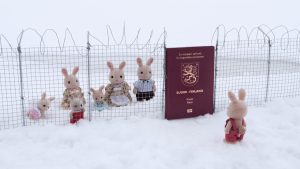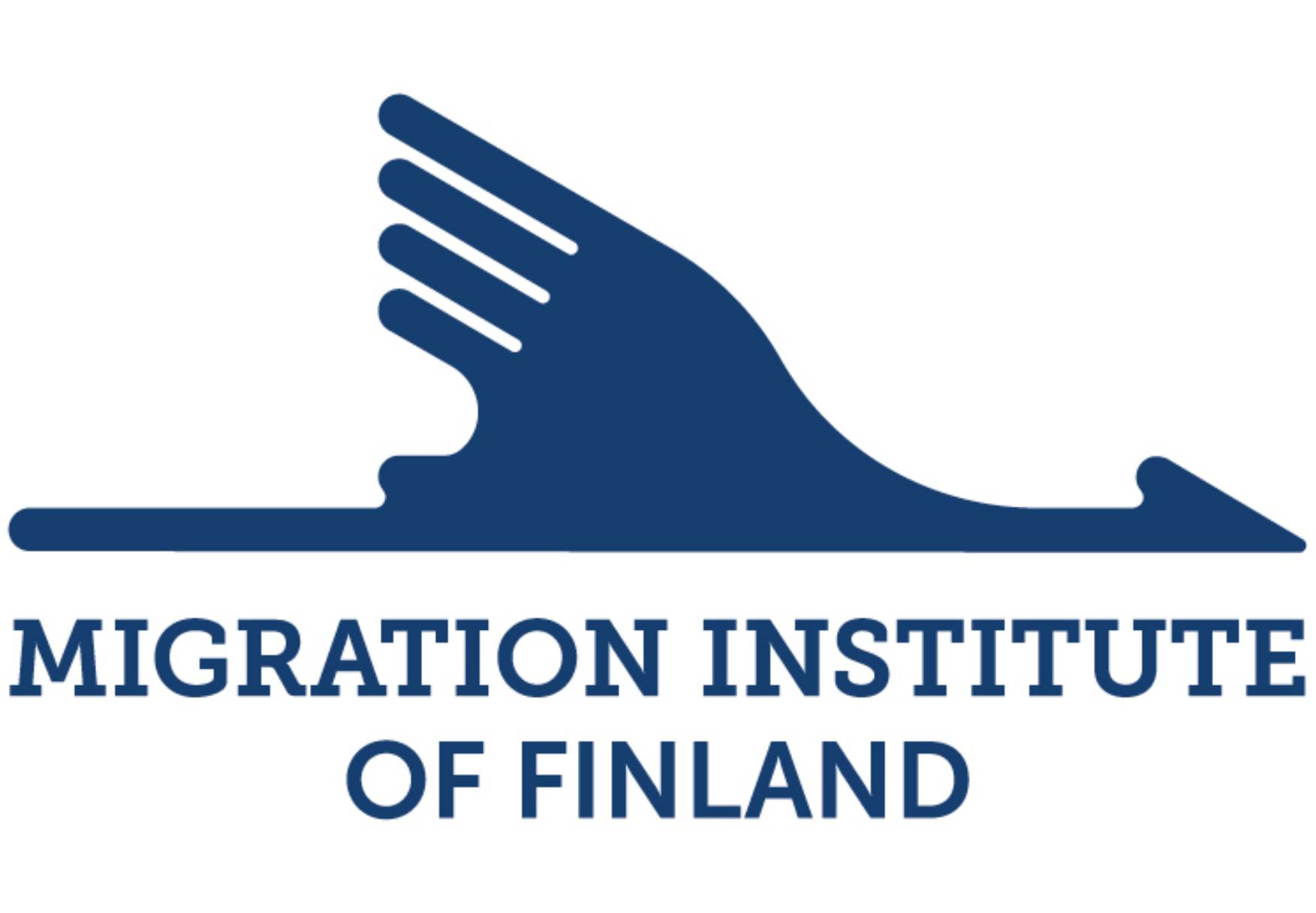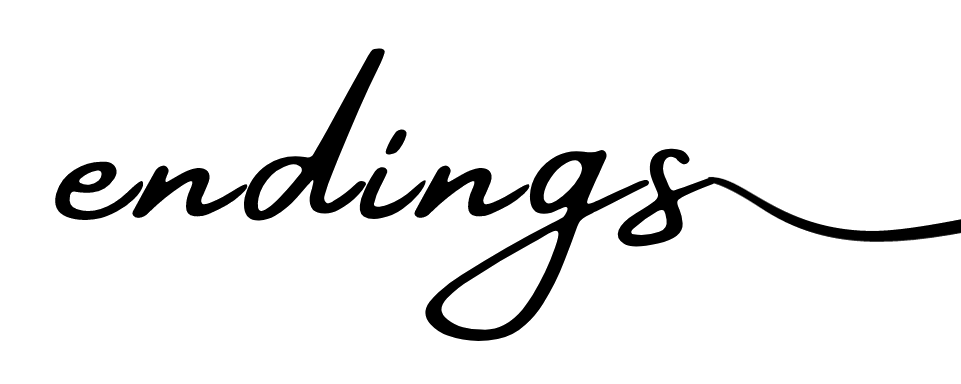Kone Foundation | 2023 – 2027
Researchers and artists:
Artist Ahmed Zaidan working for the project 1.6.2023-28.2.2025
Artist Rewan Kakil working for the project until 20.5.2025
Project objectives:
One of the most urgent issues related to refugeehood is how to end it. Examining endings is also significant in that an ending is often a prerequisite or enabler for a new beginning. But does refugeehood ever end? If so, how, when, and where? With the Endings project, we seek answers to these questions by combining research and arts through four case studies on 1) the end of refugeehood as an experience, 2) the end of refuge as a legal status, 3) the end of reception centres, and 4) the end of life in refuge.
The Endings project addresses both theoretical and empirical gaps connected with refugeehood, time, and endings. Through research and arts, this project explores possible closures, ends, finishes, cancellations, afterlives, ‘post-’s, ‘no more’s, or terminations – and the spaces related to them. To do so, Endings draws on critical research into spatio-temporal facets of forced migration, with emphasis on emotional, legal, and material aspects of the endings.
By combining scientific and artistic explorations of endings, we aim to co-create new methodological and theoretical openings and creative textual, audio, and visual expression of them. Our working methods include interviews, participant observation, document analysis, and visual, audio and textual arts.
Our aim in the Endings project is to better understand the various endings in refugee contexts. For reaching this goal, we strive to develop methods and theories to study endings and to produce artistic expressions of them. For the project, we are inspired to reflect on these questions:
1) When, where, and how do refugeehood and other refugee-related events end, if they end at all?
2) How do these endings materialise?
3) How do the endings feel, and how do they affect social relations?
4) How are the endings governed legally and administratively?
To capture the broad range of human experiences and interrogate legal categorisations, this project focuses on various groups of people who have self-identified as a refugee, whether this has been formally recognised through a legal status or not.
Main outcomes:
The main outcomes of the project consist of book integrating all main elements of the project, poetry book, four peer-reviewed articles, two art exhibitions, two co-creation events, a podcast episode, and texts for popular consumption.

Echoes of Endings Art Exhibition 14.11.2024 – 12.1.2025, Brinkkala gallery, Turku, Finland.
The moment one becomes a refugee, the immediate desire is to end the search for refuge – to conclude the phase of seeking and finally find a place of safety. This longing is the driving force behind embarking on such an uncertain journey. But does refugeehood ever truly end? If so, how, when, and where? If not, why?
‘Echoes of Endings’ is an exhibition that explores these questions through the visual and audio art of Rewan Kakil and the poetry of Ahmed Zaidan.
In total, 2323 people saw this exhibition in Brinkkala.
Key partners:
Our project’s advisory board includes leading experts in this area of research and arts: Oxford University’s Professor Loren Landau and Professor Emeritus Roger Zetter, University of Edinburgh’s Dr Georgia Cole, Bologna University’s Professor Claudio Minca, ÅAU’s Professor Magdalena Kmak, the UEF’s Professor Olga Davydova-Minguet and Dr Aija Lulle, JYU’s Professor Sari Pöyhönen, TUNI’s Dr Anitta Kynsilehto and Dr Riina Lundman; VII photo agency contributor and freelance artist Ali Arkardy, and poet and author Lauri Vanhala.
Published work:
Peer-reviewed scientific publications:
Bodström, Erna (2025). “I Want You to Tell Me about Yourself.” Epistemic Simplification in Asylum Decision-Making in Finland. Migration and Society.
Eveliina Lyytinen (2025) Legal geographies of deportability – Entanglements of power between nomospheric guardians, technicians, and figures. Political Geography, https://doi.org/10.1016/j.polgeo.2025.103333.
Erna Bodström (2025). A Matter of Individual Discretion: Facilitating Performative Credibility in Asylum Interviews. International Journal of Refugee Law
Camilla Marucco Al-Mimar (2024). Life before the passport. People with a refugee background navigating everyday life, temporalities and subjectivities between refugeehood and citizenship. PhD dissertation, University of Turku.
Non-refereed publications:
Erna Bodström, Eveliina Lyytinen (18.6.2025). Turvapaikkapolitiikan muutokset lisäävät elämän epävarmuutta. Turun Sanomat.
Eveliina Lyytinen, Erna Bodström & Jaana Palander (6.3.2025). Siirtolaisuusinstituutin lausunto hallituksen esitysluonnoksesta laiksi väliaikaisista toimenpiteistä välineellistetyn maahantulon torjumiseksi annetun lain 7 §:n muuttamisesta (so called pushback law) (VN/1196/2025) [Migration Institute of Finland’s statement to the Ministry of Interior on planned changes to the Aliens Act].
Ahmed Zaidan (6.2.2025). Echoes of Endings: Through a Poetic Prism
Erna Bodström, Jaana Palander & Eveliina Lyytinen (7.1.2025). Siirtolaisuusinstituutin lausunto sisäministeriölle luonnoksesta hallituksen esitykseksi ulkomaalaislain muuttamiseksi (asylum interview and sur place) (VN/28833/2023) [Migration Institute of Finland’s statement to the Ministry of Interior on planned changes to the Aliens Act].
Erna Bodström (6.7.2024). Käännytyslaki voi johtaa raakaan väkivaltaan. Opinion piece, Helsingin Sanomat.
Erna Bodström, Eveliina Lyytinen & Marja Tiilikainen (26.6.2024). Siirtolaisuusinstituutin lausunto sisäministeriölle luonnoksesta hallituksen esitykseksi ulkomaalaislain muuttamisesta (esitys säilöönoton ja maahantulokiellon sääntelyn tiukennuksista, VN/24058/2023) [Migration Institute of Finland’s statement to the Ministry of the Interior on planned amendments to the Aliens Act; tightening regulations on detention and refusal of entry].
Erna Bodström & Eveliina Lyytinen (17.6.2024). Turvapaikkapolitiikan uusi suunta: Epävarmuuden paradigma. Politiikasta web journal.
Erna Bodström & Eveliina Lyytinen (25.3.2024). Siirtolaisuusinstituutin lausunto sisäministeriölle luonnoksesta hallituksen esitykseksi laiksi väliaikaisista toimenpiteistä välineellistetyn maahantulon torjumiseksi (ns. käännytyslaki, SVN/5349/2024). [Migration Institute of Finland’s statement to the Ministry of Interior on planned changes to border law in response to instrumentalised migration; so-called pushback legislation].
Erna Bodström (22.3.2024). Turvapaikkakäsittely suojelee oikeutta elämään. Opinion piece, Helsingin Sanomat.
Erna Bodström, Eveliina Lyytinen & Marja Tiilikainen (12.3.2024). Siirtolaisuusinstituutin lausunto sisäministeriölle luonnoksesta hallituksen esitykseksi ulkomaalaislain muuttamiseksi (ns. pakolaisaseman lyhentäminen ja lakkauttaminen, VN/24058/2023). [Migration Institute of Finland’s statement to the Ministry of the Interior on planned amendments to the Aliens Act; shortening and abolishing the refugee status].
Erna Bodström, Eveliina Lyytinen & Marja Tiilikainen (23.2.2024). Siirtolaisuusinstituutin lausunto sisäministeriölle luonnoksesta hallituksen esitykseksi ulkomaalaislain muuttamisesta ja laiksi kansainvälistä suojelua hakevan vastaanotosta sekä ihmiskaupan uhrin tunnistamisesta ja auttamisesta annetun lain muuttamisesta (ns. rajamenettely, VN/22620/2023). [Migration Institute of Finland’s statement to the Ministry of the Interior on planned amendments to the Aliens Act, the Act on the reception of applicants for international protection, the Act on the identification and assistance of victims of human trafficking; procedures at the border].
Erna Bodström, Linda Bäckman, Eveliina Lyytinen & Marja Tiilikainen (19.2.2024). Siirtolaisuusinstituutin lausunto sisäministeriölle luonnoksesta hallituksen esitykseksi ulkomaalaislain sekä kolmansien maiden kansalaisten maahantulon ja oleskelun edellytyksistä tutkimuksen, opiskelun, työharjoittelun ja vapaaehtoistoiminnan perusteella annetun lain 2 §:n muuttamisesta (VN/24628/2023). [Migration Institute of Finland’s statement to the Ministry of the Interior on planned amendments to the Aliens Act and the Act on the entry and conditions of residence of citizens of third countries on the basis of research, studies, training and voluntary activities].
Erna Bodström (18.9.2023). Kansainvälistä suojelua hakevia kohdellaan eri tavoin. Haaste 2/2023.
Erna Bodström (7.9.2023). Hallitusohjelma ja eriarvoistamisen politiikka. Expert article in anti-racist research network Raster.fi blog.
Eveliina Lyytinen (20.6.2023) Oikeudesta turvapaikkaan ei tule tinkiä. Puheenvuoro opinion piece, Turun Sanomat.
Media coverage:
Erna Bodström (16.5.2025). Millaisia vaikutuksia maahanmuuttopolitiikan kiristyksellä on ollut? Ylen aamu, Yle TV1/Totti Toivonen. https://areena.yle.fi/1-72625123
Erna Bodström (16.5.2025). Suomen maahanmuuttopolitiikka; ulkomaisen työvoiman tarve tunnustetaan, mutta lainsäädäntöä kiristetään. Ykkösaamu, Yle Radio 1/Ilkka Lahti. https://areena.yle.fi/1-73932619
Erna Bodström (28.3.2025). Forskare ser mönster i Migris stängning av förläggningar: ”Svårt förstå varför svenskbygden drabbas så hårt”. Svenska YLE/Marcus Lillkvist.
Erna Bodström (23.2.2025). Wie Finnland das Leben von Migranten erschwert: „Der Rechtsruck betrifft uns alle“. Tagesspiegel/Benjamin Bathke.
Erna Bodström (6.2.2025). Inside Europe. Deutsche Welle/Kate Laycock.
Rewan Kakil (29.01.2025). Interview on Rudaw TV: Discussed and showcased the Echoes of Endings exhibition.
Erna Bodström (13.11.2024). Polen und Finnland scheren aus. Deutchlandfunk Kultur/Benjamin Bathke.
Erna Bodström (25.10.2024). Small changes, big consequences: Stricter migration policies make job seeking harder in Finland. InfoMigrants/Benjamin Bathke. https://www.infomigrants.net/en/post/60722/small-changes-big-consequences-stricter-migration-policies-make-job-seeking-harder-in-finland
Erna Bodström (23.8.2024). SFP får kritik av forskare: ”Man borde lyssna på de invandrare som redan är här”. Yle svenska (online/radio)/Marcus Lillkvist. https://svenska.yle.fi/a/7-10062481
Erna Bodström (23.8.2024). Politicians should listen to immigrants already in Finland, researcher says. Yle News. https://yle.fi/a/74-20106871
Erna Bodström (6.7.2024). Käännytyslaki voi johtaa raakaan väkivaltaan. Mielipide. Helsingin Sanomat. https://www.hs.fi/mielipide/art-2000010542397.html
Erna Bodström (1.7.2024). Tutkijat allekirjoittivat vetoomuksen käännytyslain torppaamiseksi: “Muista maista on nähty, että tämä on johtanut jopa kuolemiin”. Turun Sanomat/Erika Tilander.
Erna Bodström (20.5.2024). Iso osa puolueista siirtäisi turvapaikkahaun EU:lta. Finnish Broadcasting Company Yle news (TV)/Petteri Löppönen.
Erna Bodström (20.5.2024). Tutkija: Turvapaikkaprosessin ulkoistaminen ei missään tapauksessa ole ihmisoikeuksien mukaista. Finnish Broadcasting Company Yle/Topias Peltonen.
Erna Bodström, Rewan Kakil, Eveliina Lyytinen, Camilla Marucco Al-Mimar & Ahmed Zaidan (17.5.2024). From waiting in the camps to dying in exile – four arenas of endings in refugeehood. At the Well blog/Kone Foundation.
Erna Bodström (18.4.2024). Hallitus kiristää maahanmuuttopolitiikkaa: kielteisen turvapaikkapäätöksen saaneet halutaan palauttaa mahdollisimman nopeasti. Finnish Broadcasting Company Yle news (TV)/Petteri Löppönen.
Erna Bodström (18.4.2024). Sisäministerin mukaan Suomen maahanmuuttopolitiikka vertautuu Pohjoismaihin – tutkija rinnastaisi pikemmin Itä-Eurooppaan. Finnish Broadcasting Company Yle/Tuomas Rimpiläinen.
Erna Bodström (12.4.2024). Så förändrar EU:s nya migrationspakt flyktingpolitiken i Finland och EU. Finnish Broadcasting Company Svenska Yle/Magnus Swanljung.
Camilla Marucco Al-Mimar (6.4.2024). Turun yliopiston väitöskirjatutkija kritisoi oleskelulupajärjestelmää ja maahanmuuttopolitiikan kiristymistä – ”Suomen valtio erottaa ihmisiä eri luokkiin”. Turun Sanomat/Erika Tilander.
Erna Bodström (25.3.2024). Turvallisuus ja ihmisoikeudet punnittava rajalainsäädännössä. Ykkösaamu radio show, Finnish Broadcasting Company Yle Radio 1/Atte Uusinoka, Jaakko Parkkinen ja Satu Heikkilä.
Erna Bodström (25.3.2024). Uuden rajalainsäädännön haasteet. Ylen aamu morning show, Finnish Broadcasting Company Yle TV1/Ilkka Lahti.
Erna Bodström (17.3.2024). Närvårdaren Ali Reza trivs med sitt jobb inom äldrevården – snart kan personer som han avvisas utan prövning. Hufvudstadsbladet/Jenny Bäck.
Eveliina Lyytinen (15.3.2024). Tutkija toivoo olennaisia muutoksia hallituksen itärajan poikkeuslakiin: ”Turvapaikanhakijoita ei tulisi rangaista”. Finnish Broadcasting Company Yle news/Päivi Lakka.
Eveliina Lyytinen (15.3.2024). Tutkija ihmettelee hallituksen rajalain nopeaa ja salamyhkäistä valmistelua. MTV3 news.
Eveliina Lyytinen (15.3.2024). Tutkija ihmettelee hallituksen rajalain nopeaa ja salamyhkäistä valmistelua: “Näyttää huolestuttavalta”. Finnish News Agency STT/Sanna Raita-aho.
Erna Bodström (6.3.2024). Suomen maahanmuutto- ja turvapaikkapolitiikka perustuu yhä enemmän siihen, että tulijat nähdään uhkana, sanovat asiantuntijat. Maailma.net/Teija Laakso.
Erna Bodström (31.1.2024). Livet i skuggorna är värre än fängelse – men bättre än att skickas tillbaka till Irak. Arbetarbladet/Maria Saaristo.
Eveliina Lyytinen (1.12.2023). Pakolaistutkija itärajan sulkemisesta: Turvapaikkaa etsivistä ihmisistä on tullut valtakamppailun välineitä. Turun Sanomat/Erika Tilander.
Erna Bodström (30.11.2023). Näin käy niille Venäjältä tulleille, joille ei myönnetä turvapaikkaa. Iltalehti/Onni Kari, Oula Airiola.
Erna Bodström (29.11.2023). Hallitus päätti sulkea itärajan – miten turvapaikkaa haetaan jatkossa? Ylen aamu morning show, Finnish Broadcasting Company Yle TV1/Linda Vettanen.
Erna Bodström (29.11.2023). Raja-Jooseppikin sulkeutuu pian. Ykkösaamu radio show, Finnish Broadcasting Company Yle Radio 1/Mira Stenström, Mikko Haapanen, Matti Konttinen.
Erna Bodström (24.11.2023). Gazan tulitauko alkoi vihdoin. Ykkösaamu radio show, Finnish Broadcasting Company Yle Radio 1 (TV, online)/Marija Skara, Atte Uusinoka.
Eveliina Lyytinen (15.11.2023) Itärajalta tulevat turvapaikanhakijat. Finnish Broadcasting Company Yle Radio news.
Erna Bodström (13.11.2023). Yhteiskunnallinen keskustelu on valinta ja velvollisuus – itsesensuuriin ei tarvitse suostua. The Committee for Public Information/Helen Partti.
Erna Bodström (11.11.2023). Pakolaispolitiikan ajankohtaiskatsaus: Miltä näyttää maailman pakolaistilanne, entä miten vastaa EU? The Ulkopolitist (podcast)/Sofia Blanco Sequeiros, Amani Al-Mehsen.
Erna Bodström (20.10.2023). Millainen Suomen kansalaisuuskokeesta mahdollisesti tulee? Näitä asioita Norjan ja Tanskan kokeissa kysytään. MTV3 news (TV, online)/Alec Neihum, Pauliina Ainasoja.
Erna Bodström (3.-4.9.2023). Turvaan Suomeen. Finnish Broadcasting Company Yle news (online), Yle news Uusimaa (TV), Yle Radio Suomi/Paula Tiainen.
Eveliina Lyytinen (21.6.2023). Tutkija: Eurooppa ja Suomi sulkeutuvat. Turun Sanomat/Erika Tilander.
Ahmed Zaidan & Rewan Kakil (21.6.2023). “En koskaan ajatellut, että minusta tulisi pakolainen”. Turun Sanomat/Erika Tilander.
Events:
Erna Bodström (19.-28.5.2025). Research visit. University of Edinburgh.
Erna Bodström (27.5.2025). “Removal of international protection”. Presentation. Paperittomat-verkosto.
Erna Bodström (27.3.2025). International protection – from the global level to Finland. Guest lecture. Svenska social- och kommunalhögskolan, Helsinki.
Eveliina Lyytinen (20.3.2025) Social and institutional (mis)trust among older refugees. Older Persons in Crises: Rights and Challenges. Erik Castrén Institute (Faculty of Law) together with the Leo Mechelin Foundation and HelpAge International, 20-22 March 2025, in Helsinki, Finland.
Erna Bodström (12.3.2025) Booknight Erna Bodström: Pakolaiskriisi — Matkani Euroopan ulkorajoille. Interviewer Eveliina Lyytinen. Migration Institute of Finland.
Eveliina Lyytinen, Camilla Marucco Al-Mimar & Ahmed Zaidan (15.11.2024) Workshop: How, when and where may refugeehood end? Integration 2024, Turku.
Rewan Kakil & Ahmed Zaidan (13.11.2024-12.1.2025) Echoes of Endings art exhibition. Brinkkalan gallery, Turku.
Erna Bodström, Ahmed Zaidan, Eveliina Lyytinen & Camilla Marucco Al-Mimar (8.11.2024) Workshop: Resistance and endings in the context of migration. ETMU conference, University of Tampere.
Ahmed Zaidan (8.11.2024) Art: A Vital Tool for Activism. ETMU conference, University of Tampere.
Erna Bodström (8.11.2024) Legal resistance in ending the refugee status. ETMU conference, University of Tampere.
Camilla Marucco Al-Mimar (8.11.2024) Re-defining refugeehood and its possible endings? Experiences from people who navigate(d) refugeehood living in Finland. ETMU conference, University of Tampere.
Eveliina Lyytinen (7.11.2024) Ageing and the end of life in refuge – The case of men. ETMU conference, University of Tampere.
Eveliina Lyytinen (1.11.2024) Aging in exile. Methodological and ethical reflections. Finnish Geographers Days, University of Turku.
Camilla Marucco Al-Mimar (1.11.2024) Ending refugeehood? Lived experiences, relationality and the role(s) of geographers. Finnish Geographers Days, University of Turku.
Erna Bodström (30.8.2024). “I want you to tell about yourself.” Epistemic Simplification in Asylum Decision Making in Finland. ESA conference, Porto, Portugal.
Erna Bodström & Camilla Marucco Al-Mimar (15.8.2024). Workshop: Endings in migration and refugeehood. NMR conference, University of Bergen.
Erna Bodström (15.8.2024). Cessation, revocation, and the end of refuge as a legal status. NMR conference, University of Bergen.
Eveliina Lyytinen, Erna Bodström, Camilla Marucco Al-Mimar, Ahmed Zaidan & Rewan Kakil (15.8.2024) The end of reception centres. Nordic Migration Research conference, Bergen, Norway.
Erna Bodström, Eveliina Lyytinen & Camilla Marucco Al-Mimar (18.6.2024). “Epävarmuuden paradigma – ulkomaalaislain muutokset”, World Refugee Day event, Migration Institute of Finland, Turku.
Ahmed Zaidan (18.5.2024) Nottingham Performance at the Playhouse
Ahmed Zaidan (19.5.2024) Nottingham Poetry Walk and Performance at Nottingham Central Library
Ahmed Zaidan (20.5.2024) Sheffield Performance at Migration Matters Festival
Rewan Kakil (27.3.2024) “Art and Conflicts – human mobility in peace and conflict research”. University of Tampere.
Erna Bodström (1.3.2024). End of refuge as a legal status. The end of refuge in art and research – the beginning of the journey Seminar. Migration Institute of Finland, Turku.
Rewan Kakil (1.3.2024). Ongoing Endings. The end of refuge in art and research – the beginning of the journey Seminar. Migration Institute of Finland, Turku.
Eveliina Lyytinen (1.3.2024). Elderly refugees and dying in refuge. The end of refuge in art and research – the beginning of the journey Seminar. Migration Institute of Finland, Turku.
Camilla Marucco Al-Mimar (1.3.2024). End of refuge as an experience. The end of refuge in art and research – the beginning of the journey Seminar. Migration Institute of Finland, Turku.
Ahmed Zaidan (1.3.2024). Monologue of a refugee camp. The end of refuge in art and research – the beginning of the journey Seminar. Migration Institute of Finland, Turku.
Ahmed Zaidan (10.2.2024). Endings-related poetry presentation. We See You – An evening for human rights. Åbo Svenska Teater, Turku.
Erna Bodström (31.1.2024). Maatieto akateemisessa tutkimuksessa. Visit by the Country Information Service unit of the Finnish Immigration Service. Migration Institute of Finland, Turku.
Eveliina Lyytinen, Erna Bodström, Camilla Marucco Al-Mimar & Ahmed Zaidan (31.1.2024). Endings – Refuge, time, and space. Visit by the Country Information Service unit of the Finnish Immigration Service. Migration Institute of Finland, Turku.
Erna Bodström & Camilla Marucco Al-Mimar (1.12.2023). Endings – The end of refugeehood as an experience and as a legal status. ETMU conference, University of Jyväskylä.
Rewan Kakil (1.12.2023). Refugeehood – Do you have an end? ETMU conference, University of Jyväskylä.
Eveliina Lyytinen & Camilla Marucco Al-Mimar (1.12.2023). Workshop: Time and temporality in migration and refugeehood. ETMU conference, University of Jyväskylä.
Ahmed Zaidan (1.12.2023). Poetic prism: Glimpsing through endings. ETMU conference, University of Jyväskylä.
Rewan Kakil & Ahmed Zaidan (30.11.2023). Journeys through refugeehood and deportation in photographs and poetry. Opening event. ETMU conference, University of Jyväskylä.
Erna Bodström & Eveliina Lyytinen (22.11.2023). The end of refuge as a legal status – How and why people end up losing their residence permit based on international protection? Minority Studies Seminar, Åbo Akademi University, Turku.
Ahmed Zaidan & Rewan Kakil (28.10.2023). Forced Migration and The Arts.
Ahmed Zaidan, Camilla Marucco, Erna Bodström, Linda Bäckman, Eveliina Lyytinen & Rewan Kakil (20.6.2023). “Right to refuge”, World Refugee Day event. Migration Institute of Finland, Turku.
Eveliina Lyytinen & Camilla Marucco (21.4.2023). “Endings in refuge – time and temporality in refugee research”. Palmén Colloquium, Geographical Society of Finland, Helsinki & online.


